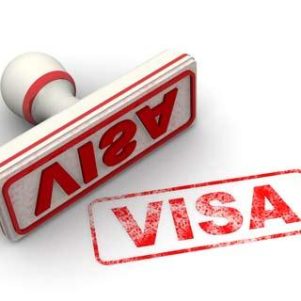The Schengen area, a particularity of the European system, is the result of the cooperation among member States in a policy framework that aims to promote the common market.
The creation of the Schengen area has allowed the opening of the land, sea, and airspace borders among the Member States of the Schengen Agreement. All EU Member States are part of this space. The exceptions are the United Kingdom, Ireland, Bulgaria, Cyprus, Croatia, and Romania as well as other countries that are not part of the European Union but exist within the general region including Iceland, Liechtenstein, Norway, and Switzerland. Thus, European citizens can travel freely within the territory marked out by the Agreement.
What would be the result for foreign nationals from non-EU countries who have obtained visas issued by a Schengen State? This question arises now more than ever since the approval of recent Spanish and European measures, in particular the 2011/98/EU Directive from December 13, 2011, which establishes a single procedure for foreign nationals to apply for a visa.
In September, Spain passed the Internationalization and Entrepreneur Support Act, Law 14/2013, which allows a foreign investor to obtain a specific permit provided that (1) the foreign investor purchases real estate in Spain with a value equal to or more than 500,000 Euros, or (2) the foreign investor makes investments in public debt securities for a minimum value of two million Euros, or (3) the foreign investor makes investments in Spanish companies’ projects of public interest.
This Law has a promising future, which is why many investors find it interesting — especially those who believe Spain is a welcome land for real estate investment where prices are more profitable. This permit allows them not only to work in Spain but also to move freely within the Schengen area.
To obtain this permit, the foreign national must:
- Not have been illegally residing in the Spanish national territory
- Be at least 18 years of age
- Have no criminal record in Spain or other countries of residence during the previous five years for acts outlined in Spanish Law
- Not be subject to refusal of entry into countries with which Spain holds an agreement to this effect
- Have the right to seek public medical treatment or hold private medical insurance coverage with a company authorized for operation in Spain
- Pay the fee to process the authorization or the visa
- Hold an original valid passport with a validity period of at least one year
- Hold sufficient funds to support both himself or herself as well as his or her family members during residency in Spain:
- Prove that he or she receives € 2,130.04 / month,
- If the foreign national’s family depends on him or her for financial support, the foreign national must provide incoming funds of a minimum of € 532.51 €/ month for each family member who relies on the foreign national.
Once the permit has expired, the foreign national may apply for a permit that will allow him or her to move freely within the territory of the other Schengen States for a maximum period of three months in six months of residence.
Although the permit offers the possibility to move freely within the territory, it also allows the foreign national holding the permit to benefit from the single European currency (Euro). The Euro makes transactions easier, particularly due to the absence of costs for exchange rates for financial operations and with a reduced risk of market fluctuations. These factors make the European economy safe and stable for foreign investors.
Hélène Dagousset
For additional information,




